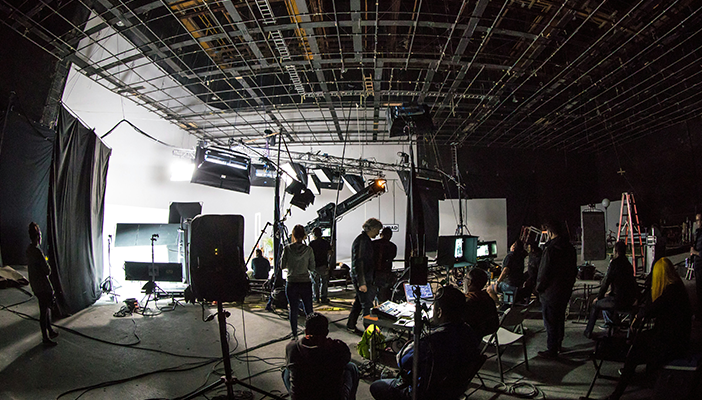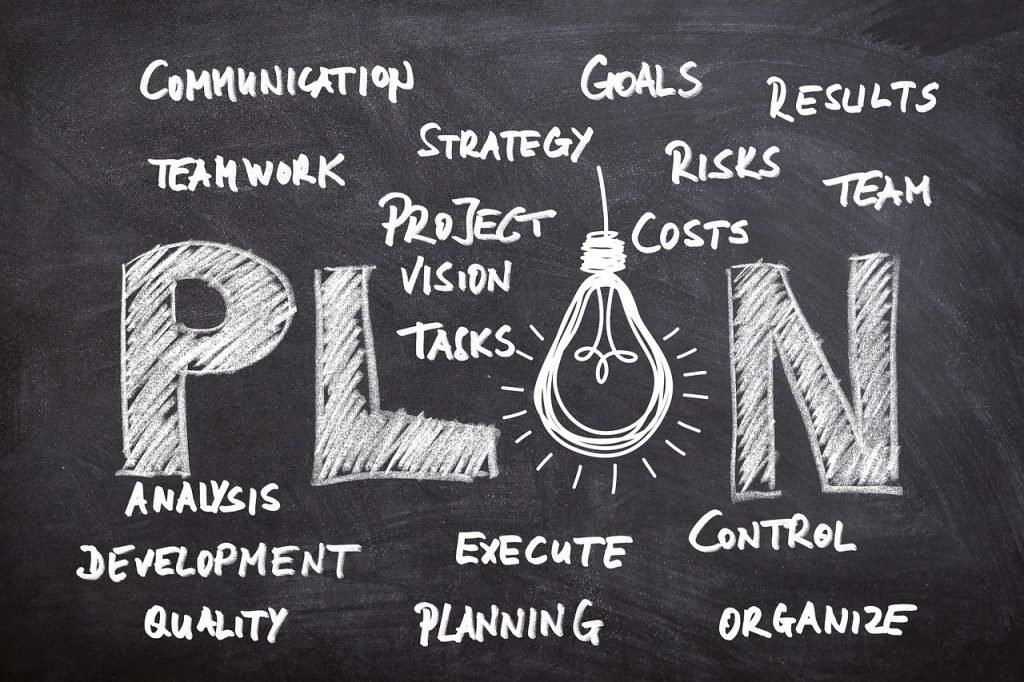Step-by-Step Success: The Best Production Manager Career Blueprint (2024)
Your complete guide to a career in production management: Learn the role, industry entry points, tools, and success tips.

My Journey: How I Broke into Production Management
I got my start in the industry rather unexpectedly when I booked an unusual PA job for a women’s non-profit organization. Fortunately, this woman happened to be the wife of a reality TV production company’s president. After I finished up my work for her that evening, she invited me to meet her husband. I thought to myself, “This is my moment.”
The conversation went well; he was very friendly and told me to send him my resume the following day. It was a Saturday evening, and I figured there was no way he would read my resume on a Sunday, so I had little expectations. Nevertheless, I sent him my resume the following morning.
To my surprise, later that afternoon, he responded, saying, “Thanks for sending over your resume. It was nice to meet you last night. Thank you for helping my wife with her event. I’ll send this to my production manager, and if we need extra hands, she will reach out.” I was shocked.
Fast-forward to the following Tuesday. The production manager called to ask if I could come in and PA on a few shows they had in production. Well, the rest is history!
Over the next few years, I climbed the production ladder, starting as a Production Assistant (PA) and progressing to a Production Coordinator and then a Production Manager. My journey didn’t stop there, but for the purpose of this post, let’s focus on the role of a Production Manager. Whether you’re interested in entering the field of production management or want to learn about the behind-the-scenes processes that make shows and movies possible, this guide will cover everything you need to know about production management and the responsibilities of a Production Manager,
The Reality of Production Management: More than Just Scheduling
What sets a successful production manager apart
While most will tell you that production managers handle schedules and budgets (which is true), the reality is far more complex and nuanced. Here’s what I’ve learned makes the difference between a good PM and a great one:
Key responsibilities of a Production Manager:
- Budget Architecture
- Creating detailed production budgets with contingencies
- Understanding union rates and regulations
- Managing multiple budget scenarios (best case/worst case)
- Tracking actual costs against projected expenses
- Identifying potential cost overruns before they happen
- Vendor Relationship Management
- Building a reliable vendor network
- Negotiating rates and payment terms
- Managing vendor expectations and relationships
- Creating competitive bidding processes
- Understanding industry-standard rates
- Logistics and Planning
- Developing production timelines and schedules
- Coordinating between departments
- Securing locations and permits
- Managing equipment rentals
- Arranging transportation and accommodation
- Literally putting out fires all day! 🙂
- Team Management
- Hiring and supervising crew members
- Ensuring smooth communication between departments and stakeholders
- Resolving conflicts and challenges
- Maintaining a safe work environment
The Art of Problem-solving: A Typical Day Might Include
- Morning Crisis Example:
- 7:00 AM: Lead actor’s flight is delayed
- 7:15 AM: Quickly reorganize the day’s schedule
- 7:30 AM: Notify all departments of changes
- 8:00 AM: Negotiate with locations to extend hours
- 8:30 AM: Adjust catering and transportation schedules
- Afternoon Challenge:
- 2:00 PM: Weather threatens outdoor shoot
- 2:15 PM: Source backup indoor location
- 2:30 PM: Calculate cost implications
- 3:00 PM: Present solutions to producers
- 3:30 PM: Execute new plan
Note: This is usually all done while filming occurs throughout the day.
Breaking into production management: A Detailed Roadmap
Starting from Square One
Breaking into production management might seem complicated, but everyone starts somewhere. Here are some suggestions:
- Entry-Level Positions
- Production Assistant Path (Office PA, Set PA, Runner, Producers Assistant)
- Volunteer on student films or indie productions
- Try working in other departments to understand their needs
- Production Secretary roles
- Network with industry professionals
- Education and Training
- Additional Experience and Skills to Develop
- Movie Magic Budgeting ($489/year)
- Movie Magic Scheduling ($489/year)
- Final Draft ($249.99)
- These can be pricey, but they are worth it!
- Microsoft Excel (advanced level)
- Google Workspace
- Adobe Creative Suite
- Organization and multitasking abilities
- Problem-solving and quick-thinking (crucial)
- Financial management
The Career Ladder: A Realistic Timeline
Based on industry averages and my experience:
- Production Assistant: 1-2 years
- Production Secretary: 6 months – 1 year
- Production Coordinator: 1-2 years
- Assistant Production Manager: 1-2 years
- Production Manager: Achievement unlocked
* I actually moved up pretty quickly. I was only a PA for about 4-5 months. I wanted to become a producer, so I usually hung around the producing team, asking many questions and asking if I could help learn. One Producer took a particular liking to me and helped get me a job as an Associate Producer on a reality show a few months later. That set off my whole career.
Digital Content Revolution: how production management is evolving
The rise of digital media and online content creation has reshaped the role of production managers. No longer confined to traditional film and TV production, production managers now navigate the dynamic demands of both short- and long-form digital content creation.
Production managers today need to juggle multiple formats, from social media videos to feature-length digital content. They must adapt to the unique challenges of each medium while maintaining a seamless workflow and meeting platform-specific requirements.
Mastering Short-Form Content Production
- Creating Short-form content on TikTok, YouTube, and Instagram has become a cornerstone of digital marketing and engagement. Production managers play a crucial role in ensuring high-quality output within tight timelines. Key considerations include:
- Optimizing Workflow for Social Media Platforms: Managing the fast-paced production cycles for TikTok, Instagram Reels, and YouTube Shorts.
- Streamlined Content Calendars: Keeping production schedules organized to align with trending topics and seasonal demands.
- Smaller Crews and Budgets: Maximizing creativity with limited resources while maintaining high production standards.
- Digital-First Distribution Strategies: Crafting content tailored to mobile viewing and algorithm-driven platforms.
Managing Long-Form Digital Content
- The rise of streaming platforms like Netflix, Amazon Prime, and Hulu has created opportunities—and challenges—for long-form digital production. Production managers must handle complex logistics, large teams, and rigorous quality control standards, including:
- Meeting Platform-Specific Requirements: Navigating delivery specifications for larger streaming apps such as Netflix, Hulu, Amazon Prime, and other streaming services.
- Ensuring Quality Control: Implementing thorough review processes to meet technical and creative standards.
- Extended Production Schedules: Balancing the needs of longer timelines with tight budget constraints.
- Coordinating Multiple Distribution Channels: Preparing content for global streaming audiences across various formats and platforms.
advanced tips for success in production management
Budget Control Strategies
- Using petty cash effectively
- Creating purchase order systems
- Managing departmental budgets
- Tracking overtime and penalties
Team Management Techniques
- Crew hiring best practices
- Department head coordination
- conflict resolution strategies
- Building team morale
Build Strong Relationships
- Cultivate a reliable vendor network
- Maintain good relationships with the crew
- Stay connected with industry trends
- Join professional organizations
- Maintain an extensive crew role
additional resources
Job Search Platforms
- StaffMeUp.com (Premium account recommended)
- Production Hub
- Mandy.com
- Entertainment Careers.net
- Connect with other members of production on LinkedIn and join Facebook groups looking for freelance help.
- Attend industry events and film festivals
Professional Development
- USC Production Management Cours
- UCLA Extension Programs
- Online certifications
- Industry workshops
Common questions about production management
- “Do I need a degree to work “Do I need a degree to work in production management?”
- No, not necessarily. I have a bachelor’s degree, but it has nothing to do with production management. I will never forget when one of my Executive Producers said on a shoot, “I don’t care if you have a degree as long as you can get the F**ing job done.
- “Is starting as a production assistant (PA) the best way to become a production manager?”
- In my personal opinion, yes. This is how I started, and it really provided the education to learn all facets of production, the different departments and roles on set, and how everything is executed. There is nothing better than learning firsthand.
- “How do I move up from production coordinator to manager?”
- Work hard! No, it’s about taking the initiative, truly understanding both roles, and wearing many hats. Ask to take on more PM responsibilities. Do the job you want and do it well. When you can execute with an understanding and put out fires without relying on upper management, that is when you know it’s your time.
- “Is production management stressful?”
- Yes, it can be challenging. However, isn’t every job in its own way? The role involves a lot of on-set management while constantly addressing issues, assisting all departments, and dealing with many people throughout the day. Be prepared, as you will be the person everyone turns to when they need something. This is the stressful part.
- “Can you make good money as a production manager?”
- Of course. However, it depends on what direction you go in. Getting into TV/Film production obviously pays the most, but you will eventually need to join the DGA, and this role is usually a Unit Production Manager, who has a lot of different responsibilities. Commercials also pay really well, but you will eventually plateau, and the goal here is to move up.
If you have any additional questions you would like answered, please feel free to contact me. I’m happy to answer!
Final thoughts
Production management is a challenging but rewarding career combining creativity with practical skills. While the role requires hard work and dedication, it offers the unique satisfaction of helping bring stories to life on screen.
Remember my story – you never know when your big break will come. Begin by gaining experience in any way you can, staying curious, and building relationships in the industry. Stay prepared, keep learning, and, most importantly, maintain your network. The production world always looks for organized, dedicated professionals who can stay calm under pressure and do the job.
Strategic Creative Producer | Director of Production with over 10 years of experience in managing end-to-end productions and creative producing, ranging from short-form content to large-scale projects. Specializing in cost optimization, operational scaling, and innovative production processes, I bring a seamless blend of strategy, creativity, and execution to every project.

